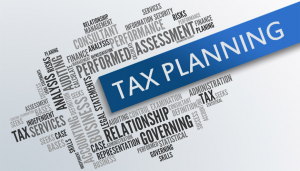
Proposed New Tax for Superannuation Balances over $3 million
On 3 October 2023, the Federal Government released draft legislation proposing a 15% additional tax on earnings for individual superannuation balances that exceed $3 million. The new measure is set to commence on 1 July 2025.
This proposed new tax will impact on individuals that have a total balance in super or more than $3 million (this is across all superannuation accounts held).
The 15% tax will be levied on the member’s account “earnings” which will be calculated as the movement between the member’s opening and closing balance for the year (after adjusting for withdrawals, contributions and other specific exclusions). It will only apply to the proportion of an individual’s account balance that is above $3 million (so if your balance is only just over the $3 million threshold, only a small proportion of the earnings will be subject to the new tax).
This means that for individuals who have a total superannuation balance in excess of $3 million, a proportion of unrealised gains of the fund will be taxed at 15%. This may cause a cash flow concern for the member as they will have to pay tax on gains that have not been realised (and may be held within illiquid assets).
Where there have been negative earnings, the loss can be carried forward to offset future “earnings”. However, there is no provision in the draft legislation for the losses to be carried back to reduce prior year unrealised gains.
As yet, there is also no provision for the $3 million threshold to be indexed.
The tax will be levied directly to the individual member (and not the superfund). The ATO will issue an assessment to the member personally and they can elect to pay the liability personally or withdraw funds from their superfund balance to pay the liability.
We will keep you up to date on the progress of the draft legislation. Please do not hesitate to contact us if you would like to discuss the impact of the proposals on your superannuation fund.
DISCLAIMER: The information in this article is general in nature and is not a substitute for professional advice. Accordingly, neither TJN Accountants nor any member or employee of TJN Accountants accepts any responsibility for any loss, however caused, as a result of reliance on this general information. We recommend that our formal advice be sought before acting in any of the areas. The article is issued as a helpful guide to clients and for their private information. Therefore it should be regarded as confidential and not be made available to any person without our consent.

Jeanette has over 20 years experience as an accountant in public practice. She is a Chartered Accountant, registered tax agent and accredited SMSF Association advisor. When she is not helping business owners grow their empires, you will likely find her out running on the trails or at the gym. Book in to see Jeanette today.




